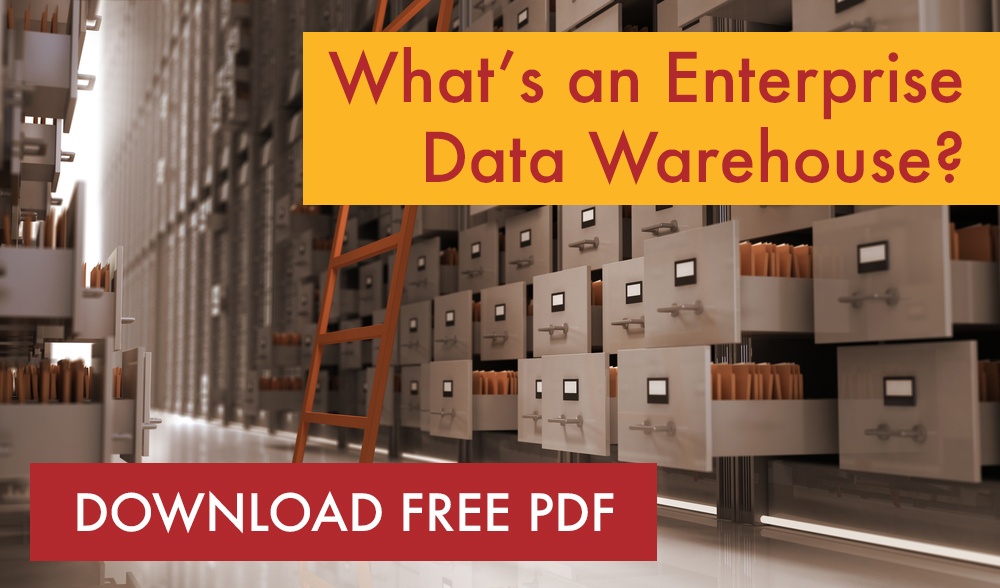
Restaurants generate an extraordinary amount of data from a number of systems. While some data stays in the system it is produced in, other pieces of data are transformed and sent to various other systems. With the growing emphasis on data-driven decision-making, restaurant companies are seeking reliable solutions to consolidate and provide access to data so everyone is on the same page. This is where a robust System of Record (SoR) comes into play. Learn the advantages of using a Data Warehouse as a Restaurant System of Record.
What is a System of Record
At its core, a System of Record (SoR) is a centralized repository that serves as the heart of a restaurant's data ecosystem. It captures, stores, and organizes critical information like:
- Sales
- Labor
- Inventory
- Food Cost
- Customer Feedback
- Employee Information
The SoR acts as the single source of truth, ensuring that all restaurant executives have access to consistent and accurate data.
The SoR plays a vital role in restaurant operations, providing a holistic view of the business's performance. By consolidating data from various sources, it enables seamless collaboration across departments and facilitates data-driven decision-making at every level of the organization.
Using a Data Warehouse as a System of Record
A Data Warehouse is a powerful alternative to traditional Systems of Record for multi-unit restaurants. A Data Warehouse is a centralized repository that stores vast amounts of data from various sources, making it a valuable asset for decision-making and strategic planning.
“So typically, your financial platform would be your system of record. What we found is with the amount of integrations we have in Mirus, and the way we've integrated it, Mirus is the data we trust. So we’re actually using it as our system of record because we have a good way to validate the data and make sure all our data gets pulled," Daniel Legh-Page, VP of Technology & Guest Services, Sprinkles.

Advantages of a Data Warehouse System of Record
-
Unified Data Storage: A Data Warehouse efficiently integrates data from diverse sources, including point-of-sale systems, back office systems, customer loyalty programs, and labor scheduling systems. By bringing together this disparate data, restaurant executives can gain a comprehensive view of their business operations and customer behavior.
-
Historical Data Retention: Unlike conventional Systems of Record that may have limitations on historical data retention, a Data Warehouse offers the advantage of storing extensive historical data. This historical context proves invaluable for trend analysis, forecasting, and understanding long-term performance trends.
-
Scalability and Performance: Data Warehouses are designed to handle large volumes of data and complex queries, making them highly scalable. As restaurants grow and expand, a Data Warehouse can accommodate increasing data demands without sacrificing performance or responsiveness.
-
Real-Time Data Processing: A Data Warehouse can process data in real-time or near real-time, ensuring that restaurant executives have access to the most current information. This capability empowers them to make agile decisions in response to evolving market conditions.
-
Advanced Analytics and Reporting: With a Data Warehouse, restaurants can leverage advanced analytics tools to gain deeper insights and create meaningful reports. From customer segmentation to demand forecasting, the analytical power of a Data Warehouse enhances decision-making and strategic planning.
-
Data Transformation and Cleansing: A critical aspect of data management is ensuring data accuracy and consistency. Data Warehouses offer data transformation and cleansing functionalities, improving data quality and eliminating errors that might lead to incorrect conclusions.
A reliable System of Record is the backbone of successful restaurant analytics and data management. By providing accurate, accessible, and secure data, a robust SoR empowers restaurants to make informed decisions, optimize operations, and enhance customer experiences. In a competitive industry where data-driven decision-making is the key to success, a trusted SoR becomes the guiding light for restaurants seeking sustained growth and prosperity. By embracing the power of a reliable SoR, restaurants can unlock their full potential and carve a path to success in the dynamic world of restaurant management.









.png?width=50&height=50&name=Mirus%20Logo%20(1).png)